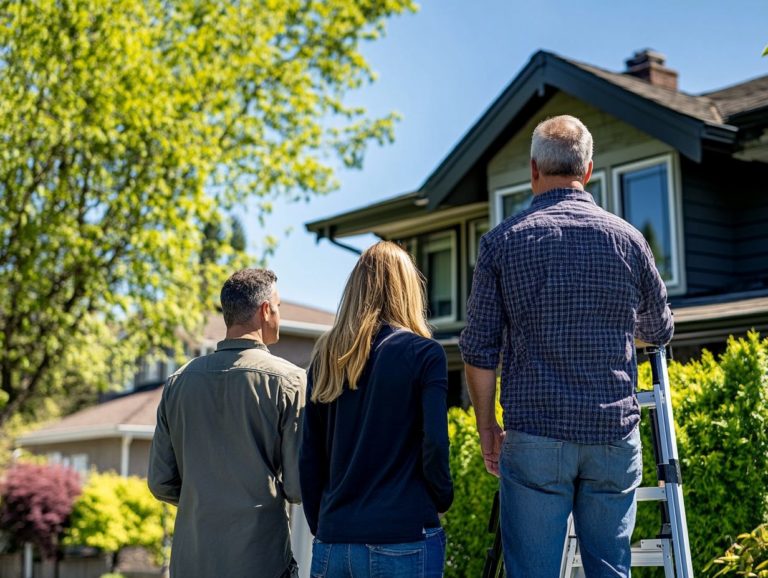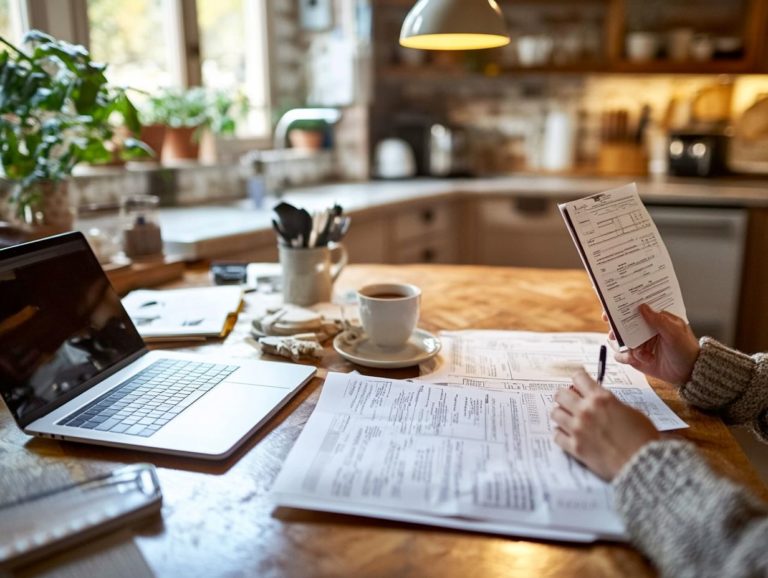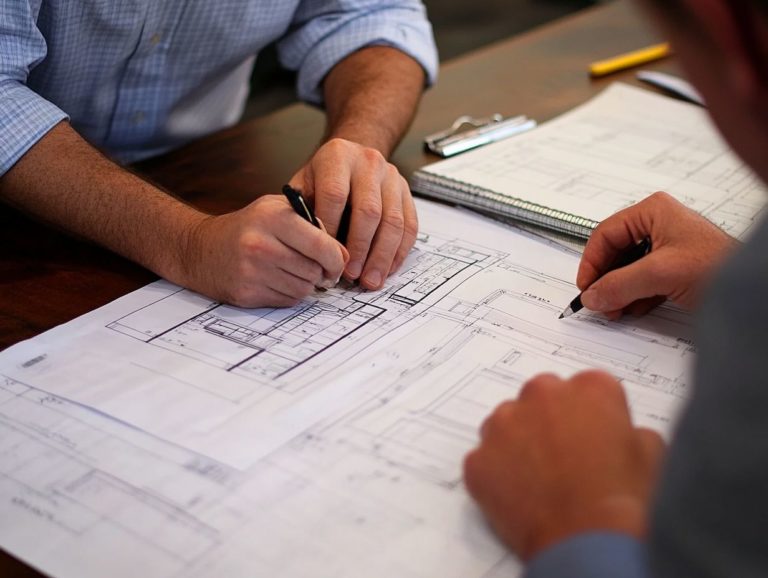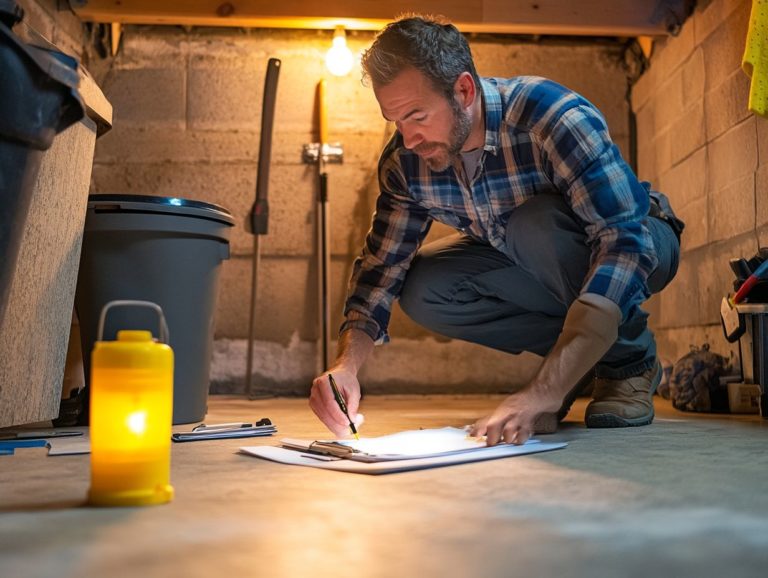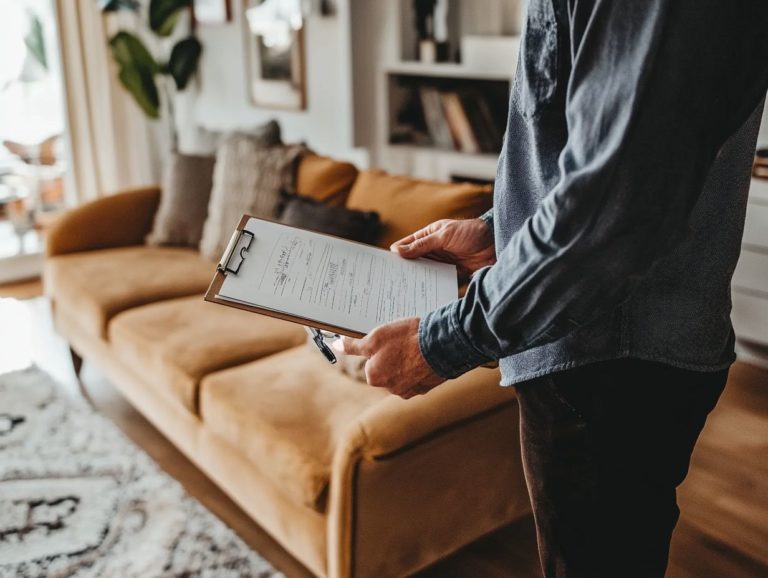The Importance of Home Inspections for New Homeowners
Buying a home is one of the most significant investments you will ever make. Ensuring its quality is absolutely essential.
A home inspection is a crucial step in the buying journey. It provides peace of mind by uncovering potential issues before you finalize your commitment.
This article explores the details of a home inspection, highlighting its importance for new homeowners and outlining what you can expect during the process.
You will also learn about common problems that inspectors often find, the associated costs, and valuable tips for selecting a trustworthy inspector.
Prepare yourself with the knowledge you need to make informed decisions about your new home!
Contents
- Key Takeaways:
- What is a Home Inspection?
- Why Home Inspections are Important for New Homeowners
- What to Expect During a Home Inspection
- Process and Timeline
- Common Issues Found During Home Inspections
- Costs Associated with Home Inspections
- How to Choose a Reliable Home Inspector
- Qualifications and Credentials to Look For
- Tips for Preparing for a Home Inspection
- What to Do After the Home Inspection
- Frequently Asked Questions
- What is the importance of home inspections for new homeowners?
- Who should perform a home inspection for new homeowners?
- What does a home inspection for new homeowners entail?
- When should new homeowners schedule a home inspection?
- How much does a home inspection for new homeowners typically cost?
- What happens if issues are found during the home inspection for new homeowners?
Key Takeaways:
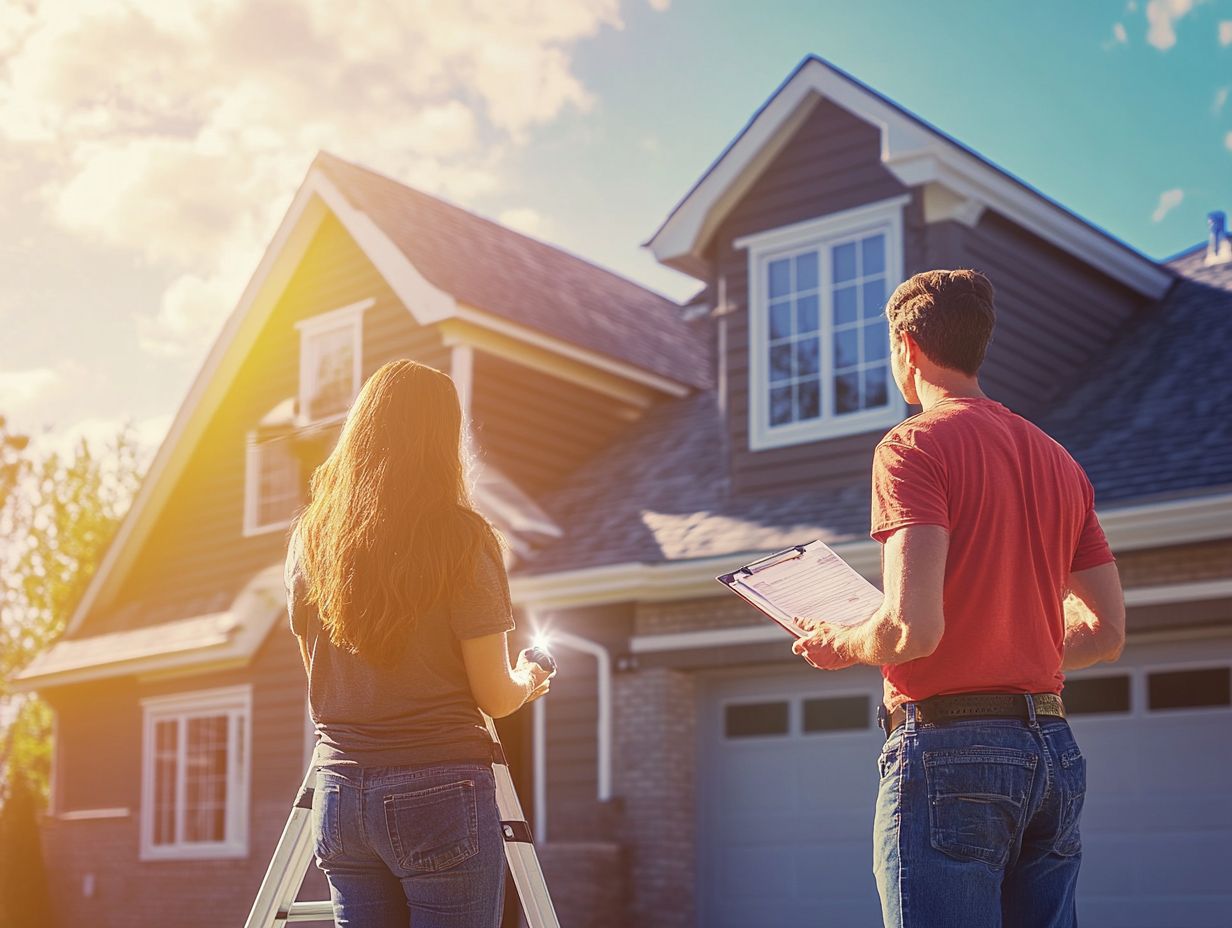
A home inspection is a crucial step for new homeowners to ensure the safety and functionality of their home. A thorough inspection can uncover potential issues and save you from expensive repairs in the future. Understanding the importance of a home inspection for buyers is vital, and it’s important to choose a reliable and qualified inspector and take necessary precautions before and after the inspection.
What is a Home Inspection?
A home inspection is an essential milestone in your home purchasing journey. Conducted by a qualified home inspector, it assesses the condition of a property, pinpointing both major and minor issues that could affect its value and safety. Understanding the importance of home inspections in real estate can help you make informed decisions.
This evaluation dives into structural components, electrical systems, plumbing concerns, and overall safety risks all critical factors to understand before sealing the deal on your purchase.
By following guidelines set by reputable organizations like the American Society of Home Inspectors, you can ensure that the inspection adheres to industry standards. This ultimately provides you with a thorough report to facilitate informed decision-making.
Definition and Purpose
The purpose of a home inspection is to give you a clear picture of a property’s overall condition. This enables you to make informed decisions and negotiate repairs with the seller before finalizing the purchase.
Beyond revealing significant structural concerns, this detailed assessment identifies major and minor issues that could impact the property’s long-term value.
Inspectors pay special attention to safety risks, such as faulty wiring and plumbing defects, highlighting the importance of thorough home inspections to ensure that you can enjoy your new home without the threat of unexpected hazards.
Compliance with local inspection standards is vital, safeguarding you from potential legal complications. A thorough examination guides you toward a sound and secure investment.
Why Home Inspections are Important for New Homeowners
Home inspections are essential for new homeowners, as they reveal hidden issues that could lead to expensive repairs or compromise your home’s value. Understanding the importance of home inspections for new homeowners can help you make informed decisions.
This process also offers valuable negotiating leverage, allowing you to address concerns before finalizing the deal.
Benefits of a Thorough Inspection
A thorough home inspection gives you a clear understanding of safety risks and maintenance needs. This helps you make informed decisions about your home purchase, especially when considering the role of home inspections for first-time buyers.
This crucial process sheds light on areas that may need immediate attention like a faulty electrical system or plumbing leaks while also providing insights into the overall condition of major systems, such as heating, ventilation, and air conditioning (HVAC) units and roofing structures.
By identifying potential repairs early, you can avoid costly surprises later. Ensuring the safety and integrity of your property fosters peace of mind, allowing you to focus on enjoying your new space, free from the worry of hidden issues.
What to Expect During a Home Inspection
During a home inspection, you can expect a meticulous evaluation of the property, usually spanning two to three hours.
The inspector will conduct a thorough assessment of various components of your future home, from the foundation to the roof.
They’ll use a comprehensive checklist to document their findings and establish a clear timeline for the inspection process.
Schedule your home inspection today to ensure you re making a sound investment!
Process and Timeline
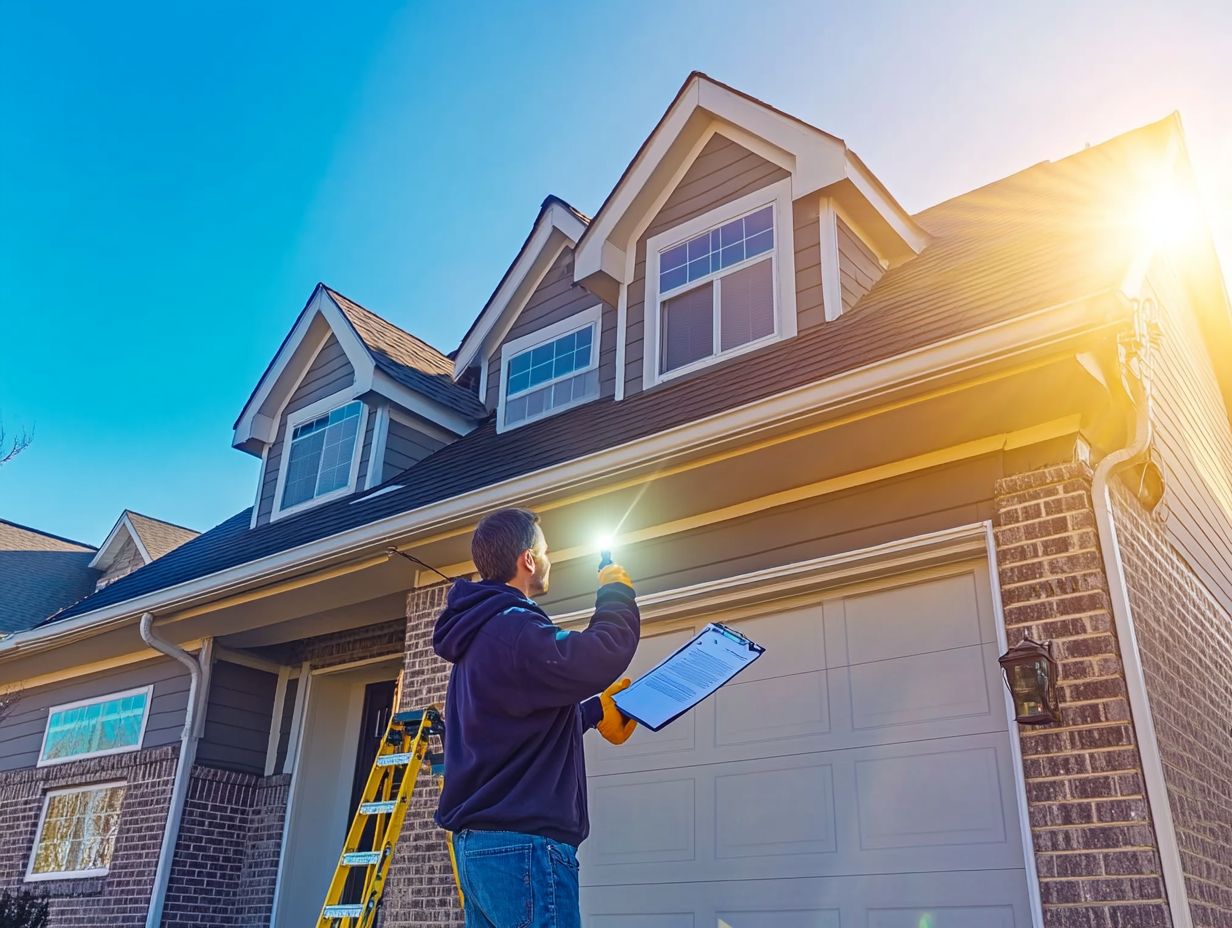
The home inspection process is a thorough evaluation of the property. It typically takes about two to three hours. This means the inspector will dive deep into every detail, ensuring nothing is overlooked!
During this time, attention is divided among critical areas such as the roof, foundation, plumbing, electrical systems, and heating, ventilation, and air conditioning (HVAC) units. Each section receives focused scrutiny. Roofs are checked for wear and water damage, while basements may reveal moisture issues and cracks that could be concerning.
You can elevate the inspection experience by actively participating in the walkthrough. Ask questions and note any concerns that may influence your decision-making. Understanding the findings as they unfold allows you to make informed choices, leading to a more transparent and confident home-buying journey.
Common Issues Found During Home Inspections
Home inspections frequently uncover a variety of common issues. These can range from significant structural concerns and electrical faults to minor plumbing problems.
Each of these factors can profoundly impact the safety and longevity of a property. It’s essential for homeowners to be aware of their potential implications.
Structural, Electrical, and Plumbing Concerns
Structural concerns, electrical problems, and plumbing issues are among the most critical findings during a home inspection. They impact both the safety and functionality of your home.
For instance, structural issues like foundation cracks or sagging beams can undermine the integrity of the entire property, exposing you to risks of collapses or severe damage.
Similarly, electrical problems including outdated wiring or overloaded circuits can create fire hazards. Ignoring these can result in costly repairs.
On the plumbing front, leaks or deteriorating pipes can lead to water damage and mold growth. This poses threats to both your health and the stability of your home.
As a potential buyer, thoroughly assess these key areas during your evaluation process to avoid unforeseen complications in the future.
Costs Associated with Home Inspections
Grasping the costs tied to home inspections is crucial for you as a buyer. Prices can fluctuate significantly based on factors such as the size, age of the home, location, and whether you opt for additional services like pest inspections or home warranties.
Average Prices and Factors that Affect Cost
The average cost of a home inspection generally falls between $300 and $500. However, this can vary based on factors including the home s age, location, and the specific inspection services required.
One key aspect to keep in mind is the home’s square footage. Larger properties often come with higher inspection fees, as they require more time and expertise to evaluate every area.
Geographical variations also play a significant role. For example, homes in urban environments may command higher costs due to a competitive market. Conversely, rural properties might present more budget-friendly options.
Services like radon testing, pest inspections, or thermal imaging can also contribute to the overall price, depending on what you, as a prospective buyer or owner, wish to discover about the property’s essential features.
How to Choose a Reliable Home Inspector
Choosing a reliable home inspector is essential for securing a comprehensive evaluation of your property. Carefully consider their qualifications and ensure they hold credentials from recognized organizations like the American Society of Home Inspectors.
Take the time to read reviews from reputable platforms such as the Better Business Bureau. This diligence will help you make an informed decision and protect your investment.
Qualifications and Credentials to Look For
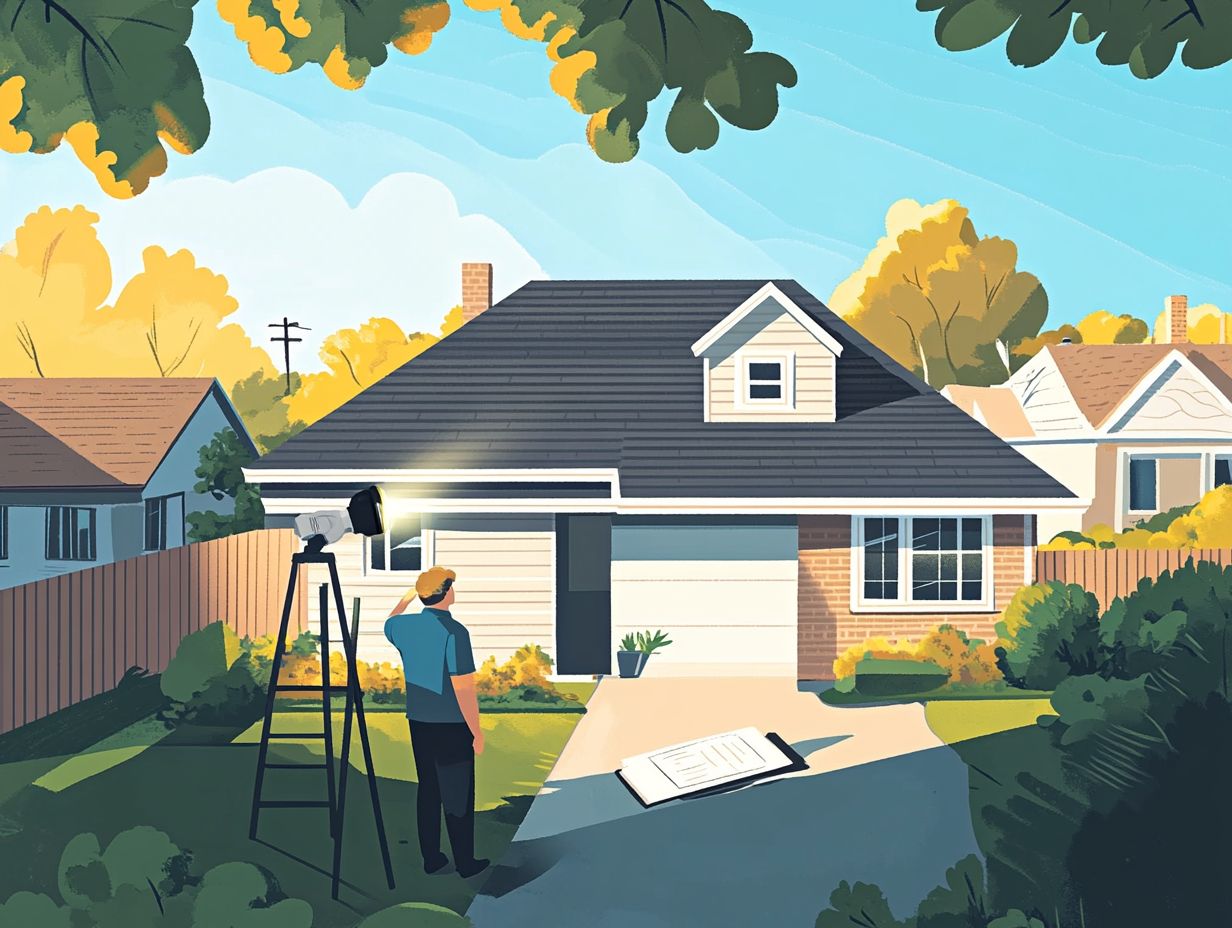
When selecting a home inspector, verify their qualifications and credentials. Look for certifications from reputable organizations like the American Society of Home Inspectors and the International Association of Certified Home Inspectors.
These certifications indicate that the inspector completed rigorous training and passed comprehensive exams. They also show a commitment to ongoing education and industry standards.
Inspectors with specialized credentials in areas like mold inspection, radon testing, or energy efficiency can provide invaluable insights during your buying process.
This expertise enhances your confidence as a buyer, ensuring potential issues are identified early and addressed properly. Ultimately, it grants you peace of mind in your investment.
Tips for Preparing for a Home Inspection
Get ready for your home inspection! A little preparation can make everything go smoothly.
Being prepared helps buyers appreciate the property fully and ensures it s ready for evaluation. It also provides clarity on any home maintenance issues that may need attention.
Steps to Take Before the Inspection
Before a home inspection, take specific steps to prepare. Start by reviewing the property s history and fixing any obvious problems.
Compile a home inspection checklist to ensure a thorough evaluation. Familiarizing yourself with local building codes is crucial.
This knowledge gives you insights into what to expect during the inspection. Considering the property’s age may reveal certain concerns that aren t immediately visible.
Walk through the home carefully before the inspector arrives. Note any peculiar smells or sounds.
By adopting a proactive mindset, you can set the stage for a detailed inspection that addresses your specific worries.
What to Do After the Home Inspection
Don t wait! Dive into the inspection results right away to make the best decisions for your future.
Thoughtfully interpret the results from the inspection report. Assess the implications of any identified issues and plan your next steps.
This may involve to engage in repair negotiations with the seller.
Interpreting the Results and Next Steps
Interpreting your home inspection results is essential. It helps you grasp the significance of each issue and determine the best course of action.
A thorough review of the inspection report lets you identify which problems are minor and which could pose serious risks.
By categorizing issues based on urgency and repair costs, focus on what needs immediate attention versus what can wait. This strategy streamlines communication with the seller.
Engaging a qualified contractor for estimates can further strengthen your bargaining position, ensuring all agreed-upon repairs are completed satisfactorily before you finalize the deal.
Frequently Asked Questions
What is the importance of home inspections for new homeowners?
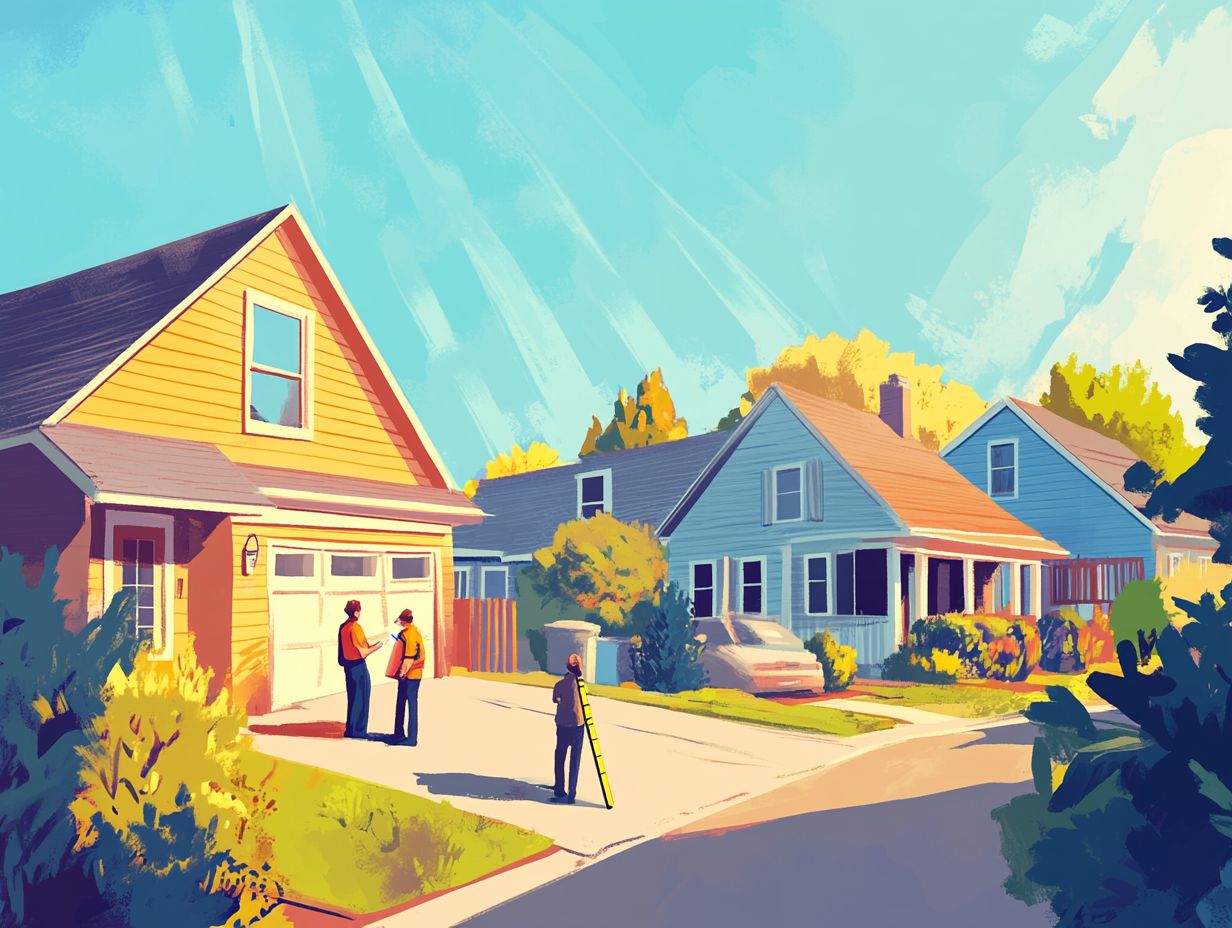
Home inspections are crucial for new homeowners. They provide a full check-up of the property’s condition, highlighting the importance of pre-purchase home inspections, allowing buyers to make informed decisions and avoid costly surprises.
Who should perform a home inspection for new homeowners?
A certified and experienced home inspector should perform the inspection. It s essential to hire someone who is impartial and has no vested interest in the sale of the property.
What does a home inspection for new homeowners entail?
A home inspection involves checking the home’s structure, electrical and plumbing systems, and heating, ventilation, and air conditioning systems. It also assesses the property s safety and functionality.
When should new homeowners schedule a home inspection?
New homeowners should schedule a home inspection before closing on the property, as understanding the importance of a thorough home inspection gives them time to make repairs or negotiate with the seller.
How much does a home inspection for new homeowners typically cost?
The cost of a home inspection varies based on the property s size and location. On average, it ranges from $300 to $500.
What happens if issues are found during the home inspection for new homeowners?
If the inspection reveals issues, buyers should act quickly. They can negotiate repairs with the seller or adjust the sale price accordingly. In some cases, walking away from the sale might be the best option.

